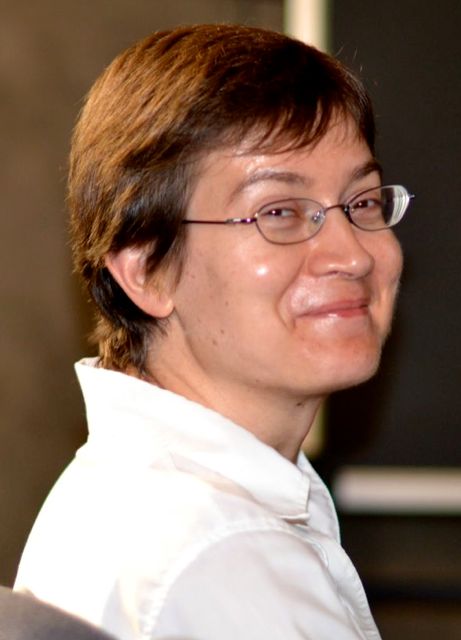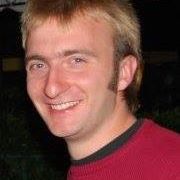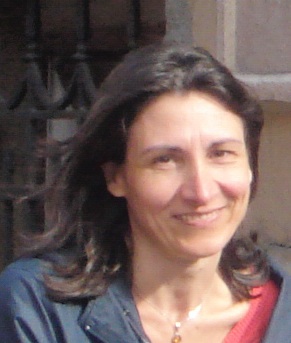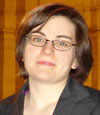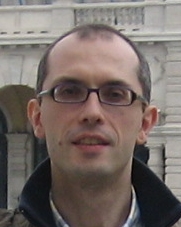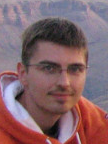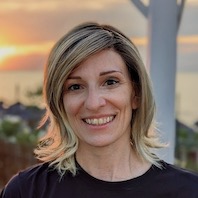Studying at the University of Verona
Here you can find information on the organisational aspects of the Programme, lecture timetables, learning activities and useful contact details for your time at the University, from enrolment to graduation.
Academic calendar
The academic calendar shows the deadlines and scheduled events that are relevant to students, teaching and technical-administrative staff of the University. Public holidays and University closures are also indicated. The academic year normally begins on 1 October each year and ends on 30 September of the following year.
Course calendar
The Academic Calendar sets out the degree programme lecture and exam timetables, as well as the relevant university closure dates..
| Period | From | To |
|---|---|---|
| I semestre | Oct 1, 2018 | Jan 31, 2019 |
| II semestre | Mar 4, 2019 | Jun 14, 2019 |
| Session | From | To |
|---|---|---|
| Sessione invernale d'esame | Feb 1, 2019 | Feb 28, 2019 |
| Sessione estiva d'esame | Jun 17, 2019 | Jul 31, 2019 |
| Sessione autunnale d'esame | Sep 2, 2019 | Sep 30, 2019 |
| Session | From | To |
|---|---|---|
| Sessione Estiva | Jul 17, 2019 | Jul 17, 2019 |
| Sessione Autunnale | Nov 20, 2019 | Nov 20, 2019 |
| Sessione Invernale | Mar 17, 2020 | Mar 17, 2020 |
| Period | From | To |
|---|---|---|
| Sospensione dell'attività didattica | Nov 2, 2018 | Nov 3, 2018 |
| Vacanze di Natale | Dec 24, 2018 | Jan 6, 2019 |
| Vacanze di Pasqua | Apr 19, 2019 | Apr 28, 2019 |
| Festa del Santo Patrono | May 21, 2019 | May 21, 2019 |
| Vacanze estive | Aug 5, 2019 | Aug 18, 2019 |
Exam calendar
Exam dates and rounds are managed by the relevant Science and Engineering Teaching and Student Services Unit.
To view all the exam sessions available, please use the Exam dashboard on ESSE3.
If you forgot your login details or have problems logging in, please contact the relevant IT HelpDesk, or check the login details recovery web page.
Should you have any doubts or questions, please check the Enrollment FAQs
Academic staff
 mariacaterina.baruffi@univr.it
mariacaterina.baruffi@univr.it
 alberto.benvegnu@univr.it
alberto.benvegnu@univr.it
 maurizio.boscaini@univr.it
maurizio.boscaini@univr.it
 federico.busato@univr.it
federico.busato@univr.it
 enrico.fraccaroli@univr.it
enrico.fraccaroli@univr.it
 claudio.tomazzoli@univr.it
claudio.tomazzoli@univr.it
Ugolini Simone
 simone.ugolini@univr.it
simone.ugolini@univr.it
Study Plan
The Study Plan includes all modules, teaching and learning activities that each student will need to undertake during their time at the University.
Please select your Study Plan based on your enrollment year.
1° Year
| Modules | Credits | TAF | SSD |
|---|
Mathematical analysis 1
Computer Architecture
2° Year activated in the A.Y. 2019/2020
| Modules | Credits | TAF | SSD |
|---|
3° Year activated in the A.Y. 2020/2021
| Modules | Credits | TAF | SSD |
|---|
| Modules | Credits | TAF | SSD |
|---|
Mathematical analysis 1
Computer Architecture
| Modules | Credits | TAF | SSD |
|---|
| Modules | Credits | TAF | SSD |
|---|
Legend | Type of training activity (TTA)
TAF (Type of Educational Activity) All courses and activities are classified into different types of educational activities, indicated by a letter.
Algorithms (2019/2020)
Teaching code
4S02709
Teacher
Coordinator
Credits
12
Language
Italian
Scientific Disciplinary Sector (SSD)
INF/01 - INFORMATICS
Period
II semestre, I semestre
Learning outcomes
The course objective is to provide the foundamental tools to design algorithmic solutions for concrete programs. The algorithms are evaluated and compared based required amount of resources.
At the end of the course the student will have
to demonstrate knowledge and understanding of the main algorithms for the problems of sorting, selection, priority queues, visit of graphs, shortest paths, minimum spanning trees, maximum flow;
have ability to apply acquired knowledge and understanding skills to compare algorithms on the basis of their complexity;
know how to choose the right algorithm for a specific situation;
know how to develop the skills necessary to expand the knowledge learned in order to understand algorithmic solutions to new problems.
Program
Complexity: complexity of algorithms, asymptotic notation, resolution of recurrence equations.
Sorting and selection: insertion sort, merge sort, heap sort, quick sort, randomized quick sort. Linear algorithms, counting sort, radix sort, bucket sort. Selection algorithms.
Data structures: heap, binary search trees, RB-trees, B-trees, binomial heaps, hash tables, priority queues, disjoint sets, extension of data structures, graphs.
Design and analisis of alsorithms: divide et impera, greedy, dynamic programming, local serch, backtracking, branch and bound.
Foundamental algorithms: minimum spanning tree (Prim and Kruskal), linear programing (simplex and basic elements of the elipsoid method) shortest path with single source (Dijkstra and Bellman-Ford) and multiple source (Floyd-Warshall and Johnson), maximum flow (Ford-Fulkerson, Karp), maximnal matching on bipartite graph.
| Author | Title | Publishing house | Year | ISBN | Notes |
|---|---|---|---|---|---|
| T. Cormen, C. Leiserson, R. Rivest, C. Stein | Introduzione agli Algoritmi e Strutture Dati (Edizione 2) | McGraw-Hill | 2005 | 88-386-6251-7 |
Examination Methods
The exam consists of a writtene test of three hours, divided into two parts, and possibly of an oral colloquium.
The forst part of the written test consists of several questions with multiple choices. It produces a valuation from 0 to 30. The exam is not passed if the evaluation is below 18. The exam ends if the evaluation is between 18 and 23. The second part of the written test, available only if the evaluation of the first part is at least 24, consists of one or more exercises of increasing complexity. The evaluation is between 24 and 30.
The optional oral examination is available only if the evaluation of the second part of the written test is at least 27.
The evaluation scale is the following. 18-28 (pure notionistic knowledge), 22-24 (acceptable understanding of the arguments), 25-27 (ability to apply the concepts learned in the course), 28-30 (ability to elaborate autonomous ideas based on the concepts learned in the course).
Type D and Type F activities
Modules not yet included
Career prospects
Module/Programme news
News for students
There you will find information, resources and services useful during your time at the University (Student’s exam record, your study plan on ESSE3, Distance Learning courses, university email account, office forms, administrative procedures, etc.). You can log into MyUnivr with your GIA login details: only in this way will you be able to receive notification of all the notices from your teachers and your secretariat via email and soon also via the Univr app.
Graduation
List of theses and work experience proposals
| theses proposals | Research area |
|---|---|
| Analisi e percezione dei segnali biometrici per l'interazione con robot | AI, Robotics & Automatic Control - AI, Robotics & Automatic Control |
| Integrazione del simulatore del robot Nao con Oculus Rift | AI, Robotics & Automatic Control - AI, Robotics & Automatic Control |
| Domain Adaptation | Computer Science and Informatics: Informatics and information systems, computer science, scientific computing, intelligent systems - Computer graphics, computer vision, multi media, computer games |
| Domain Adaptation | Computer Science and Informatics: Informatics and information systems, computer science, scientific computing, intelligent systems - Machine learning, statistical data processing and applications using signal processing (e.g. speech, image, video) |
| BS or MS theses in automated reasoning | Computing Methodologies - ARTIFICIAL INTELLIGENCE |
| Domain Adaptation | Computing Methodologies - IMAGE PROCESSING AND COMPUTER VISION |
| Domain Adaptation | Computing methodologies - Machine learning |
| Dati geografici | Information Systems - INFORMATION SYSTEMS APPLICATIONS |
| Analisi e percezione dei segnali biometrici per l'interazione con robot | Robotics - Robotics |
| Integrazione del simulatore del robot Nao con Oculus Rift | Robotics - Robotics |
| BS or MS theses in automated reasoning | Theory of computation - Logic |
| BS or MS theses in automated reasoning | Theory of computation - Semantics and reasoning |
| Proposte di tesi/collaborazione/stage in Intelligenza Artificiale Applicata | Various topics |
| Proposte di Tesi/Stage/Progetto nell'ambito dell'analisi dei dati | Various topics |
Attendance
As stated in the Teaching Regulations for the A.Y. 2022/2023, attendance at the course of study is not mandatory.

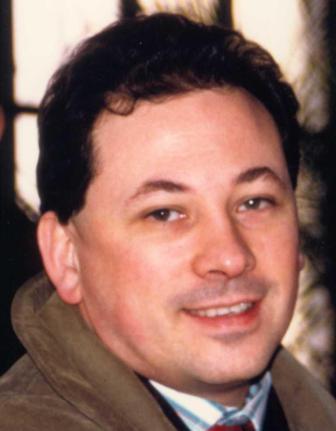
 +39 045 802 7980
+39 045 802 7980

